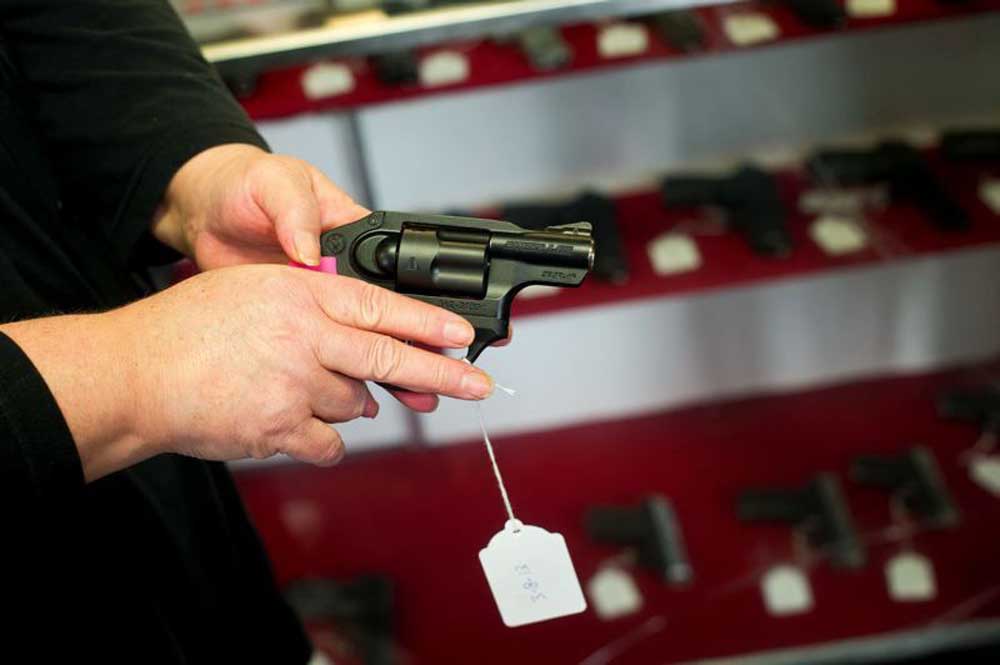Republican lawmakers take aim at new gun storage law
Published 11:00 am Friday, June 4, 2021
One day after Democratic Gov. Kate Brown signed it, three Republican state representatives set in motion a petition drive that seeks to force a statewide election on new firearms storage requirements and a ban on firearms in some public places.
The documents for a referendum were filed Wednesday, June 2, by Reps. Mike Nearman of Independence, E. Werner Reschke of Klamath Falls and David Brock Smith of Port Orford.
All of them voted against Senate Bill 554, which requires locks and safe storage for firearms and bars an estimated 300,000 holders of concealed-handgun licenses from bringing firearms into the Capitol in Salem and the passenger terminal at Portland International Airport. The bill also would allow firearms bans by public schools, community colleges and universities in their buildings and on their grounds if their governing boards agree.
House Republican Leader Christine Drazan of Canby called for a petition drive during House debate on the bill on April 29. She did so to rebut critics who said Republicans should have walked out and denied Democrats the two-thirds majority (40) required to conduct business in the House. (Unlike previous years, however, House rules now in effect enable Speaker Tina Kotek to levy fines of $500 per day for unexcused absences.)
For a referendum to qualify for a statewide ballot, opponents will have to gather 74,680 signatures — equal to 4% of the votes cast for governor in 2018 — by Sept. 25, 90 days after the projected June 27 close of the 2021 Legislature. The secretary of state would have 30 days to verify signatures.
If enough signatures are verified, the new law is suspended until the statewide vote takes place in the November 2022 general election. A “yes” vote upholds the law as passed by the Legislature; a “no” vote would throw it out. If voters upheld the law, it would take effect 30 days after the election once results are certified.
Such referendum elections have met with success and failure over the past 25 years.
Oregon voters in 2014 overturned the Legislature’s approval of a 2013 bill allowing driver cards to people unable to prove legal presence in the United States. (The Legislature in 2019 passed a different bill that had an emergency clause, which prevented a referendum; opponents were unable to gather sufficient signatures for an initiative measure, which has a higher total.)
They also rejected in 2004 tax increases lawmakers passed in 2003 to balance the state budget and, in 1998, rejected a measure lawmakers passed in 1997 to reimpose criminal penalties for possession of less than one ounce of marijuana.
On the other hand, voters in 2010 upheld tax increases lawmakers passed in 2009 to balance the state budget and, in 2018, upheld legislatively approved taxes on hospitals, insurers and some health providers to raise money for the Oregon Health Plan for low-income people.
Nearman is under indictment in Marion County Circuit Court on a charge of first-degree official misconduct and a charge of criminal trespass in connection with his allowing anti-lockdown protesters to enter the Capitol — closed since March 18, 2020, because of the coronavirus pandemic — during a Dec. 21 special session of the Legislature. Some protesters breached the building but were ejected by police, though the protesters caused damage to the Capitol.
Nearman’s next scheduled court date is later in June. He also is the subject of a complaint pending before the House Committee on Conduct.










